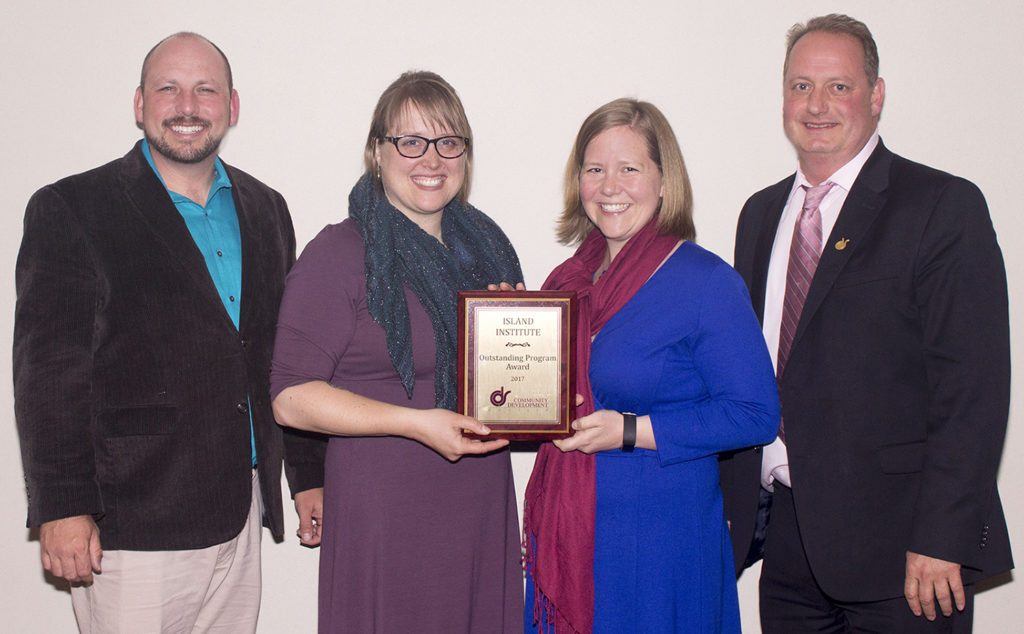By Staff / Penobscot Bay Pilot
The Island Institute’s Island Fellows Program was recently recognized as the 2017 Outstanding Program by the Community Development Society, a national professional society for practitioners of community development.
The annual award is presented in recognition of superior programming that exemplifies and positively influences community development practice. It was one of nine awards presented at the organization’s Annual International Conference which took place in Big Sky, Montana, in June.
One of the core programs of the Island Institute, the Island Fellows Program places recent college and master’s degree graduates in Maine’s coastal and year-round island communities for one- to two-year fellowships, and provides a unique opportunity for graduates to apply their skills and gain experience helping to build sustainability within communities whose way of life and identity face many unique challenges and opportunities.
“We are proud to have the Island Fellows program recognized in this way,” said Karen Burns, vice president of community at the Island Institute. “This award is a direct reflection of the hard work and commitment our staff members, Island Fellows, and community members have put into this program over the past 18 years. In addition, being recognized as the best program in 2017 on a national scale by our peers and those working in the field of community development is an incredible honor.”
Started in 1999, the Island Fellows program is designed to meet diverse and changing community needs. Fellows work on a wide range of issues from elder care and telemedicine access to after school programing and municipal planning. Placements are designed to address a specific project for two years, while building capacity at the community level to ensure the sustainability of projects after the Fellowship term has ended.
During their time in the program, Fellows work to increase the leadership capacity of community members though their work with nonprofit board members, municipal leaders, and influential community leaders. They are able to provide technical assistance and research that provides high quality information to inform important community decisions.


